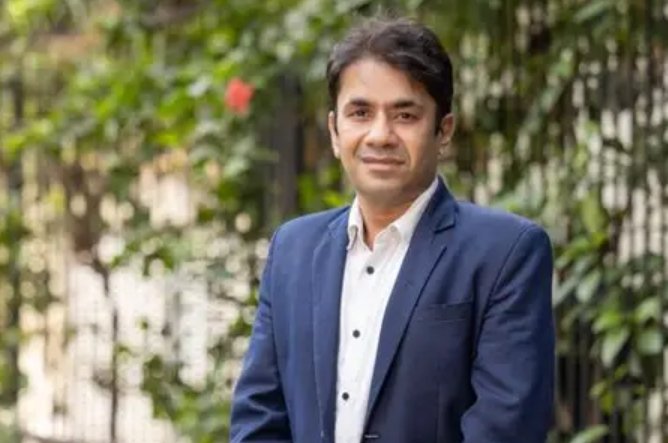On Life Support: Biomedical Engineering in India Faces Quiet Collapse
August 19, 2025 | Tuesday | Views | By Shantanu Thatte, Head - Biomedical Engineering, HOSMAC
What began as a promising field, aligned with India’s healthcare innovation goals, is now grappling with shrinking interest
Since the COVID-19 pandemic, India has seen a rapid expansion in hospitals and medical colleges, with the government actively increasing MBBS seats. But one essential part of this growing system has been left behind i.e. Biomedical Engineering (BME). Who will plan and maintain the complex medical equipment in these new hospitals? As clinical infrastructure expands, BME is quietly slipping into neglect.
Introduced in India in the 1990s, BME programmes received early support through initiatives like the ICMR–DHR Centres of Excellence and IIT Bombay’s BETiC (Biomedical Engineering and Technology Innovation Centre). Yet, despite India’s growing healthcare and med-tech ecosystem, the field now faces declining enrolments, limited job opportunities, and minimal industry engagement, thereby putting it at risk of collapse.
The Rise and Fall of BME in India
Top institutes like IIT Delhi and IIT Bombay pioneered BME to train talent in medical device R&D. Government programmes like “Make in India” encouraged innovation, while BETiC at IIT Bombay produced over 85 medical device prototypes by 2024. Startups like Ayu Devices (electronic stethoscopes) and Biodesign Innovation Labs (low-cost ventilators) emerged from these efforts, winning national recognition and funding under Startup India and BIRAC.
Private institutions like VIT, Manipal, and BIT Mesra also invested in BME programmes. But despite these early signs of promise, the field is struggling. In Maharashtra, only two of the seven colleges that once offered a BME degree continue to do so. Across India, programmes often operate at less than 60% enrolment capacity, and graduates face uncertain job prospects.
Key Challenges Facing Biomedical Engineering
- Curriculum Misalignment: There is no national standard for BME education. Many programmes are heavily theoretical, with inadequate lab infrastructure and minimal clinical exposure. The removal of the mandatory in-plant training component has worsened the skills gap.
- Weak Industry and Hospital Integration: Hospitals rarely involve biomedical engineers in procurement or planning, relying instead on vendors. Likewise, medical device firms—especially MNCs—prefer engineers from mechanical or electronics backgrounds, bypassing BME graduates altogether.
- Low Compensation and Recognition: Despite their critical role in managing life-saving equipment, biomedical engineers in hospitals are underpaid and often lack clear growth paths. Compared to IT and management roles, BME is perceived as low-return.
- Lack of a Regulatory Body: Unlike doctors or architects, BME professionals have no formal registration or licensing. A statutory body could help regulate academic standards, professional conduct, and career recognition.
- Degree vs Diploma Divide: Many employers prefer diploma holders for biomedical roles due to lower salary expectations, leaving degree holders undervalued and underutilised.
- Limited Job Market: Many small hospitals function without a full-time biomedical engineer, limiting both job availability and safe equipment maintenance. This scarcity affects both career mobility and patient safety.
The Consequences
- Talent Drain: With limited local opportunities, students increasingly seek better prospects abroad—draining domestic talent.
- Innovation Slowdown: Without skilled professionals, innovation hubs like BETiC and ICMR Centres risk stagnation. Without industry input, the gap between R&D and commercialization widens.
- Impact on Patient Care: A shortage of qualified biomedical engineers compromises the upkeep of critical medical equipment—ventilators, MRI scanners, dialysis machines—ultimately affecting patient outcomes.
The Way Forward
Despite the bleak outlook, systemic reforms can still revive the BME ecosystem:
- Standardised Curriculum: AICTE and UGC must develop a national BME curriculum focusing on biomaterials, clinical engineering, regulatory affairs, and biomedical instrumentation.
- Outcome-Based Accreditation: Programs should be evaluated on real-world metrics such as internships, research output, and startup spin-offs, to ensure relevance and quality.
- Mandatory Clinical Fellowships: Hospitals should host BME students in biomedical departments to provide hands-on experience with equipment evaluation, maintenance, and regulatory workflows.
- Industry-Academia Partnerships: Medical device companies should fund labs and sponsor R&D projects within universities, creating talent pipelines and fostering innovation.
- Public Awareness and Career Outreach: Successful biomedical entrepreneurs and professionals should be showcased to inspire students and change perceptions about BME careers.
- Cross-Disciplinary Integration: Incorporating AI, data science, and robotics into BME programs can help future-proof the discipline and attract high-potential students.
Biomedical Engineering in India is at a tipping point. What began as a promising field, aligned with India’s healthcare innovation goals, is now grappling with shrinking interest, limited job opportunities, and systemic neglect. Without immediate reforms—from curriculum upgrades and hospital collaboration to proper regulation and public awareness—the field risks fading into irrelevance, even as India’s healthcare infrastructure grows.
Reviving BME isn’t just about sustaining an academic discipline. It’s about equipping the country with the technical expertise it needs to deliver modern, reliable, and safe healthcare. India cannot afford to build more hospitals without the engineers needed to power them.
Shantanu Thatte, Head - Biomedical Engineering, HOSMAC
Asia’s leading hospital planning, management and design consultancy










